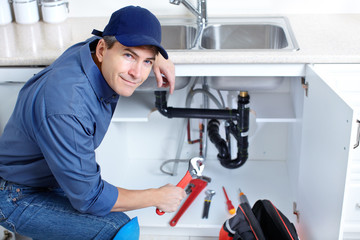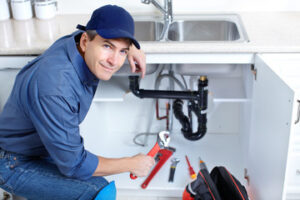Plumbing is the system of pipes, fixtures, and appliances that distributes potable water and removes waste in residential, commercial, and industrial settings. Plumbers install, repair, and maintain these systems to ensure safe and efficient operation. For more information, click the link https://www.platinumplumbingsbc.com/ provided to proceed.
Understanding plumbing can help you avoid costly home and business repairs. For example, knowing what goes down toilets is important so you don’t flush things like hair, grease, and other items that can cause blockages.

The water supply to a home or business is a basic yet essential service. It is the infrastructure that allows people to drink, cook, wash, and carry away waste with clean, safe water. It includes collecting, transmitting, treating, storing, and distributing potable water for homes, commercial establishments, thermoelectric power facilities, mining operations, and public needs such as street washing and fire fighting. A water supply system is different from irrigation, which involves the practice and systems of water use for agricultural purposes.
The raw water source for a water supply system is normally a reservoir, lake, or river. In some cases, groundwater may be used. The raw water is normally conveyed to the water supply plant through conduits or aqueducts, and the water is treated there. Upon completion of the treatment process, the water is pumped into a distribution system for distribution to users.
Once the water is in a distribution system, it may be distributed to users through a network of pipes of various sizes. The pipe network is normally designed with loops, ensuring that water flows continuously and eliminating dead ends. This enables the system to maintain water supply even if a network section is out of service. In addition, the distribution system is normally equipped with sufficient valves of different types and sizes to isolate various system sections for maintenance and repair.
A water supply system is typically a municipal or private utility that charges customers for their water. Its responsibilities include:
- We are constructing and operating the water supply infrastructure, including reservoirs, pipelines, meters, and treatment plants.
- We are establishing water quality standards for drinking water.
- I am collecting tariff revenues.
- We are providing information to customers.
The system may also identify and monitor water-quality problems, such as contamination by hazardous materials. The system is normally run by a municipality, county, or state agency, depending on the size of the system and the population served. A water supply system can be private or public and serves one or more cities, towns, or villages.
The plumbing system in your home does two things: it brings fresh water to fixtures like faucets and toilets and removes wastewater and waste. The latter, called drain plumbing, is more difficult than supply plumbing since it deals with waste that has been used and contaminated by food particles, cleaning chemicals (which are toxic if ingested), and, in some cases, sewage. The drain pipes in your house are sloped to let gravity help carry the waste to its final destination, which could be a sewer line, septic tank, or water treatment facility.
Proper drainage systems are essential for keeping your property looking its best and preventing damage from flooding or erosion. A professional usually designs and installs these systems to ensure they will work properly.
Drainage channels are typically made of concrete or stone and should be installed at the appropriate slope and level to ensure proper water flow. Outlets are usually placed in drain lines to prevent rodents and other animals from building nests. Herbicides may also keep grass and weeds from growing in the drain channels.
Clogged drains are a common problem in many households, and hair, soap residue, food particles, and other debris can cause them. These can be avoided by regular maintenance and being mindful of what goes down the drains. Running toilets are another common problem that can lead to significant water waste and high utility bills. These can be caused by a faulty flapper valve or fill valve, and they can often be fixed with a simple replacement.
The plumbing in your home includes vents that allow air to enter the drainpipes, which helps maintain equal pressure and speed up the flow of waste. You can also find traps, curved sections of pipe that retain a small amount of water to form a seal and stop foul odors and sewer gases from entering your home. Drain plumbing is a complex and important part of your home’s plumbing, and an experienced professional should always handle it.
Providing heating and cooling to a home or business is another important aspect of plumbing. It can involve installing, maintaining, and repairing air conditioning units and furnaces. It also includes ductwork, vents, and other related equipment.
Plumbing is distinct from process piping because the former involves distributing chemicals and liquid components within a building. At the same time, the latter deals with the transmission of liquids and gases to/from processing machines. Both systems require detailed knowledge of engineering and science, but plumbing requires a more extensive skill set.
Plumbers may work for themselves or be employed by a company. They often work evenings and weekends to meet the demands of customers. They must be able to follow safety regulations when working with dangerous materials such as chemicals and sewage. It can be physically demanding since it involves climbing and working in tight spaces. Also, plumbers are usually on-call for emergencies, which can disrupt their personal lives. This makes it difficult to maintain a healthy work-life balance. However, the rewards can be great for those who pursue this career path.
Plumbers perform various tasks to maintain and repair homes and businesses’ water, sewage, and waste disposal systems. Their responsibilities include:
- Installing new plumbing fixtures and appliances, such as sinks, toilets, tubs, showers, and water heaters.
- Repairing existing ones.
- Maintaining pipe and sewer line integrity.
- Performing tests to ensure the proper functioning of water and waste disposal systems.
Plumbers must also keep up with local regulations, codes, and standards.
Because plumbers work with dangerous chemicals and pipes, they must follow strict safety guidelines to avoid exposure and illness. Their job requires high technical knowledge, practical skills, and problem-solving abilities. They must also have physical stamina to lift and maneuver heavy objects. Plumbers often work on weekends and evenings to meet clients’ needs and travel between jobs.
While there are many different types of plumbing systems, they all consist of pipes that carry potable water, sewage, or both to and from buildings. The piping must be made of nontoxic materials and properly installed to ensure that the water supply is clean and safe for human consumption.
Some common plumbing issues include leaking faucets, running toilets, and clogged drains. Regular maintenance can help prevent these problems and keep the water flowing properly in a home or business. This includes checking for leaks, insulating pipes in cold climates, and avoiding putting grease or large food particles down the drain.
Plumbing is a skilled trade that requires specialized training and certification. Most plumbers earn their qualifications through education and on-the-job experience, including a high school diploma or equivalent and an apprenticeship that combines classroom instruction with paid on-the-job training. Some may also attend a vocational or trade school to learn more about the field and earn an associate degree in plumbing. Those who wish to become professional plumbers must pass an exam administered by their state or country’s licensing body. Plumbers must also stay current on their field’s latest tools and technologies.

 Plumbing is the piping that delivers water to and from fixtures and appliances. It also includes the drains that dispose of waste. The plumbing system is complex, with many parts and connections. In addition, many different terms can be confusing to those who need to become more familiar with the industry. These terms can make it difficult to understand the instructions in a DIY plumbing project, or even to communicate with a plumber when an issue arises.
Plumbing is the piping that delivers water to and from fixtures and appliances. It also includes the drains that dispose of waste. The plumbing system is complex, with many parts and connections. In addition, many different terms can be confusing to those who need to become more familiar with the industry. These terms can make it difficult to understand the instructions in a DIY plumbing project, or even to communicate with a plumber when an issue arises.